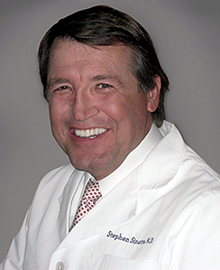Module XVI-D: The Masters Review of Cardiovascular Medicine Breakthroughs is the fourth and final module within the Advanced Cardiology Certification. Fully revised to reflect the latest clinical updates and scientific research, this advanced module will feature Q&A discussions, recent literature reviews, protocol assessments, and treatment plan options. Designed to provide an in-depth and updated review of clinically valuable information, Module XVI-D will be organized into three main sections: cardiovascular updates in clinical medicine, clinical didactic presentations, and clinical case presentations. Led by a panel of some of the field’s most well-respected and renowned clinical experts, participants will complete the module with an actionable understanding surrounding a wide variety of clinically relevant topics including insulin resistance, dyslipidemia, obesity, coronary heart disease, inflammation and CVD, personalized CV medicine, and much more.
Learning Objectives
Review CV diagnosis and testing for precision and personalized CV medicine
Review the pathophysiology, diagnosis and treatment of diabetes mellitus and its relationship to CVD
Review the role of nutrients and nutrient-drug depletions in CVD
Discuss the relationship of the eye and retina to hypertension and CVD
Review and be competent in the evaluation and relationship of obesity, inflammation and CVD.
Understand the practice of precision and personalized CV medicine
Review the relationship between the kidney and cardiovascular disease
Understand the Role of Co Q 10 in CVD, hypertension, dyslipidemia, coronary heart disease and congestive heart failure
Review the sex-specific data on cardiovascular disease and how to translate them into practice
Identify the normal and abnormal function of the hypothalamic-pituitary-adrenal-thyroid-gonadal-gut (HPATG) axis as it relates to women’s health, including polycystic ovarian syndrome, metabolic syndrome, perimenopause, and menopause
Recognize the normal function of homeostatic mechanisms related to stress and hormone production, and the role of gene/environment interactions
Review key signs and symptoms of dysregulation of the HPATGG and relevant lab testing
Identify the most accurate functional and laboratory testing in HPATGG dysregulation, and be able to assess critical transitions from health to disease
Know specific potential strategies to improve HPATGG function
Schedule
Schedule Subject to Change
Times in CST
Friday, December 11
8:00 am
Obesity, Adipokines, Inflammation and Cardiovascular Disease
Joseph Lamb, MD
10:00 am
Break
10:30 am
Women and Cardiovascular Disease: A Personalized Approach from a Female Physician
Sara Gottfried, MD
12:30 pm
Lecture Sponsored by Bio-Botanical (Non-CME)
3:30 pm
Break
6:00 pm
Close of Session
Saturday, December 12
8:00 am
10:00 am
Break
10:30 am
Drug Nutrient Interactions and Depletions in Cardiovascular Disease, Hypertension, Dyslipidemia and Diabetes Mellitus
James LaValle, RPh, CCN
12:30 pm
Lecture Sponsored by KBMO (Non-CME)
1:30 pm
Hypothalamic-Pituitary-Adrenal-Thyroid-Gonadal-Gut Axis and Cardiovascular Disease
Sara Gottfried MD
3:30 pm
Break
4:00 pm
The Clinical Use of Omega 3 Fatty acids in Cardiovascular Disease
Robert Superko, MD
6:00 pm
Close of Session
Sunday, December 13
8:00 am
Precision and Personalized Cardiovascular Medicine Part 1
Mark Houston MD, MS MSc
10:00 am
Break
10:30 am
Precision and Personalized Cardiovascular Medicine Part 2
Mark Houston MD, MS MSc
12:30 pm
Stubborn Plaque Cases: Unprecedented Outcomes With New Vascular Protocols
Kristine Burke, MD
1:30 pm
Precision and Personalized Cardiovascular Medicine Part 3
Mark Houston MD, MS MSc
3:30 pm
Break
4:00 pm
Case Presentations in Cardiovascular Disease and CHD
Douglas Harrington, MD
6:00 pm
Close of Session
Register
MODULE XVI-D - Physician |
$2,500 USD | ADD TO CART |
MODULE XVI-D - Allied Health |
$2,250 USD | ADD TO CART |








